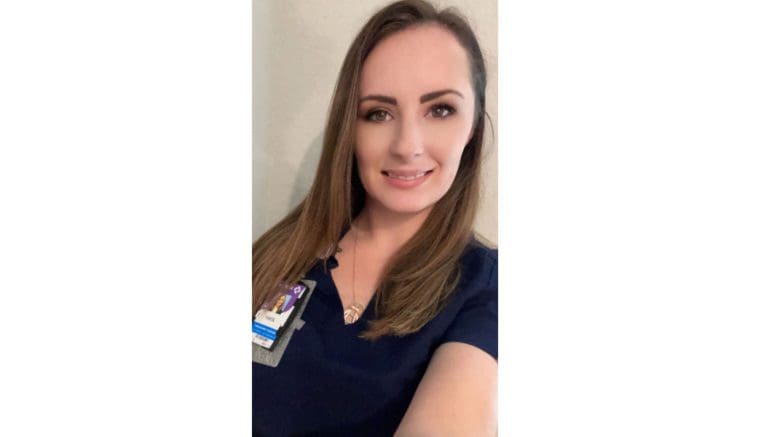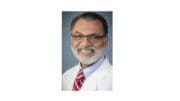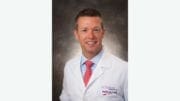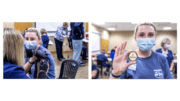In 2016, Jennifer Knight worked in the bistro at the Wellstar corporate office in Marietta. Knight had always wanted to be a nurse.
She was at first unsuccessful in finding a job in patient care at Wellstar Health Systems so she accepted the bistro job in hopes it would bring her closer to her goal.
There she met Jill Case-Wirth, who at that time was a Senior Vice President and Chief Nurse Executive with Wellstar.
Case-Worth encouraged Knight to keep trying.
The Courier interviewed Knight about her ultimately successful journey to becoming a registered nurse (RN).
Knight told the Courier about her early life attraction to a nursing career.
“I kind of knew that I wanted to be a nurse since I was in middle school,” she said. “I took some classes in middle school, like the health care classes and stuff like that.”
She tried to get a job with Wellstar in a patient care capacity but her first attempts were not successful.
So she spoke with Case-Wirth, who encouraged her to continue trying.
“(Case-Wirth) explained to me about what techs were and how I could get into becoming a tech in the hospital system,” Knight said. “And so I applied to a couple of different places and got on with the (Wellstar) Cobb emergency room.”
Knight said she fell in love with working in emergency care.
“But then I went back to school to become a nurse,” she said.
She entered West Georgia Technical College and received her Associate of Science in Nursing (ASN) last August, but her schooling took place against a challenging personal backdrop.
“I had a lot going on,” she said. “I was pregnant with my second son when Jill Case-Wirth spoke with me about becoming a patient care tech.”
“Then I had my daughter that’s now four,” Knight said. “I got pregnant and had an ectopic while in nursing school. I had to have a full C-section.”
“And then I got pregnant right after recovering from that, and was pregnant when I graduated nursing school,” she said.
The Courier asked Knight to describe a typical shift in the emergency room.
“It is very busy. It’s been very busy for the last few years, honestly,” she said. “But typically, you would come in, you get four patients unless there is an ICU. And if there’s an ICU, we try to only do three.”
“But it all depends on what kind of patients you have,” said Knight. “You can either go into triage and you can help with making sure that everybody up in the triage area gets care. Or you can have your own team back on one of the pods.”
“And like I said, it’s normally about four patients unless you have an ICU and they try to only do three,” she said.
The Courier asked Knight if she had any advice for others who would like to pursue a career in nursing.
“I would say honestly to work in patient care first just like Jill told me years ago,” she said.
“I think that working in patient care, you get a feel for what you’re going to be doing as a nurse, and it kind of helps prepare you for when you graduate,” said Knight. “If I were a new grad coming straight from not having any patient care experience in the emergency room, I would feel way less confident than I did coming out after working in the emergency room for as long as I did..”
The Courier asked Knight if she had future career plans.
“I’ve already started looking at schools to go back to get my BSN,” she said. “Because right now, I only have my ASN. So I’m already looking at schools to get my bachelor’s.”
“At this time, I don’t want to get my Master’s or go to be an NP (Nurse Practitioner).”
“I really enjoy bedside nursing. So that’s kind of where I want to be for now. That may change in the future, but I really enjoy the bedside,” said Knight.
“I think that, especially with COVID, and a lot of nurses leaving bedside, a lot of students that were in nursing school, kind of got discouraged,” she said. “But I think that as long as you are there to help people, and that’s what you want to do, that’s all you really need.”
“You need to make sure that you can go in and you’re in the right headspace to be able to help others,” she said. “And as long as you can do that, then what other people say and how they felt during the pandemic shouldn’t matter.”
“And personally, I’ve worked in the emergency room throughout the whole pandemic as well,” she said. “And I went to school during the pandemic, and even coming out of it, I still feel like this is where I should be, this is where I need to be.”





